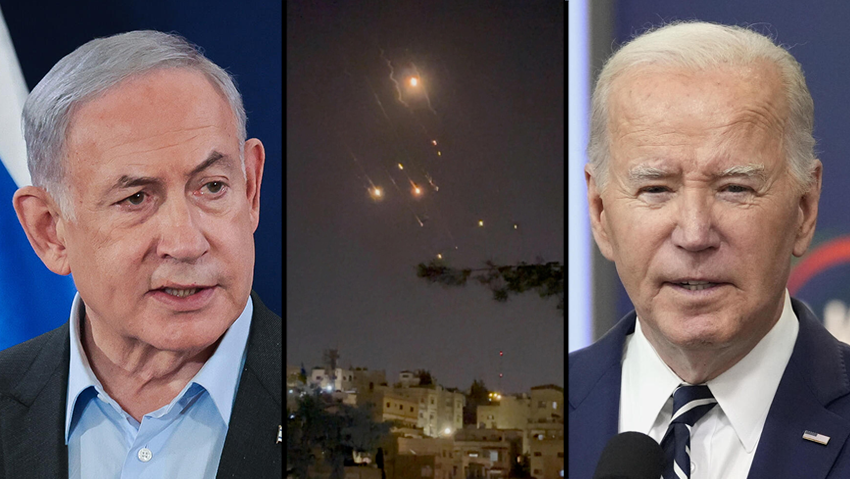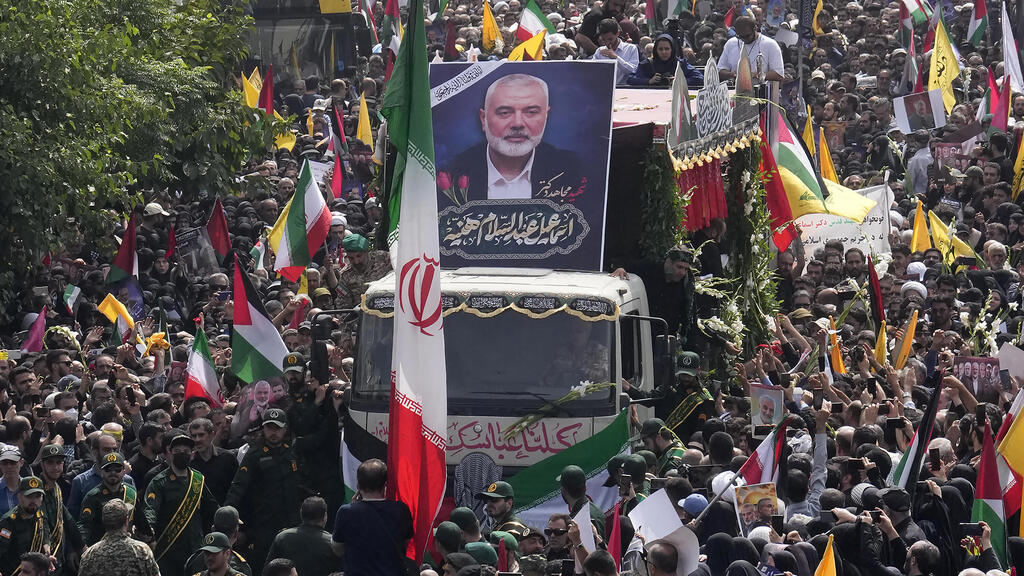Getting your Trinity Audio player ready...
Iran has rejected intense efforts by the U.S. and Arab diplomats to moderate its response to the assassination of Hamas leader Ismail Haniyeh in Tehran, the Wall Street Journal reported Sunday.
Since the killing, Iranian leaders have vowed retaliation, with sources familiar with the discussions indicating that Iranian officials have stated: "We do not care if our response sparks a war."
2 View gallery


Prime Minister Benjamin Netanyahu, United States President Joe Biden
(Photo: AFP, Reuters)
The U.S. has urged Western and Arab nations to convey a message to Iran to avoid escalation, warning that any significant attack would provoke a counter-response. American officials have indicated that if Tehran opts not to escalate the situation excessively, the new Iranian president, inaugurated just hours before Hamas political leader Ismail Haniyeh's assassination, would have a better chance to improve relations with the West.
Washington's message is clear: "Iran must show restraint." Meanwhile, IDF spokesperson Brigadier General Daniel Hagari announced that there are no changes to current guidelines despite Iran's threats. "At this time, there is no change in the Home Front Command's defensive policy. We are working to provide you with the necessary warnings to prepare for any threat, and unless stated otherwise, there is no change to the Home Front Command's defensive policy. We will update it only if required."
Hagari added that: "We are in strong readiness for defense in the air, at sea, and on land, and we are preparing for any sudden threat. We will update any changes in defensive policy on the Home Front Command's platforms, and I will be here to provide updates. The defense is not hermetic, so every citizen is required to know the guidelines for the area they are in and to remain alert."
"In recent days, we have seen an increase in public visits to the Home Front Command website and the questions they have raised. All answers can be found on the Home Front Command website, and we are also updating it in response to new questions that have arisen," he added. "Additionally, today, the Home Front Command launched a new system called "Personal Message." This is a system recognized by international standards that sends defense alerts for sudden large-scale emergency events. The alert is sent to mobile phones located in a threatened area. This is without the need for an app or any action from the citizen."
When asked why Israel is waiting for an Iranian retaliation instead of launching a preemptive strike, Hagari responded: "We have plans and are highly prepared to execute them. We will act immediately upon receiving orders from the political leadership."
Amid efforts to de-escalate the situation, many countries, both Arab and Western, are not taking any risks and are urging their citizens to leave Lebanon due to fears of an all-out war with Israel. In light of the anticipated Iranian retaliation and Hezbollah's response, Prime Minister Benjamin Netanyahu is holding a situation assessment Sunday evening with senior defense officials. U.S. Central Command Commander General Michael Kurilla is scheduled to arrive in Israel Monday as part of a regional tour in the Middle East to coordinate the international coalition's efforts to intercept the expected Iranian attack and Hezbollah's retaliatory strike.



